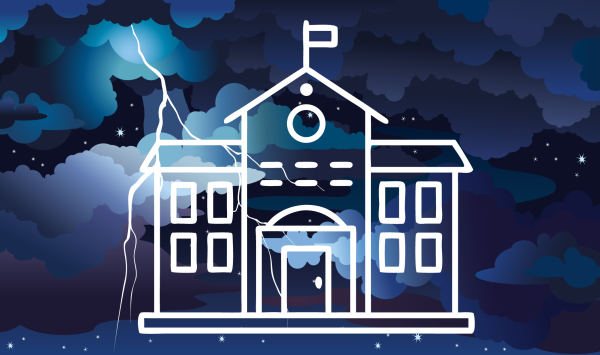“Me Too” founder Tarana Burke clarifies movement; encourages people to listen, share stories
There are many misconceptions about what the “Me Too” movement stands for.
The biggest one being that the purpose of the movement is to take down powerful men.
Wrong.
The movement is about sexual violence in the workplace.
Wrong.
This is a movement just for women.
Wrong.
Tarana Burke from The Bronx, NY and founder of the “Me Too” movement spoke to a packed Field House on Feb. 13 about the true intentions of this movement and where she hopes it will go from here.
On Oct. 15, 2017, actress Alyssa Milano tweeted “If you’ve been sexually harassed or assaulted write ‘me too’ as a reply to this tweet.” What she didn’t know was that this movement had already been created by Burke, and that she had ignited a spark on social media for many individuals who had been victims of sexual violence.
When Burke was only 14, the 21st Century Youth Leadership movement found her. The purpose of this movement was to create grassroots community leaders in a hands-on way.
This group was the beginning of the journey that would change her life.
In 1989, the first thing she organized around was the central park jogger case. Five juvenile men, four black and one Hispanic, were accused of sexually assaulting a white woman in central park. Burke knew that these men did not commit this crime because she knew one of the men who was involved. The group organized around the accused and coordinated a rally in support of the men. From that very moment, Burke said, the spark was ignited inside her. At this moment, she knew that this was something she was passionate about.
Flash forward to 2006, Burke had been working for 21st century after graduating from Auburn University. At a summer leadership camp, Burke met a new girl who she calls “Heaven” publicly. One day, the young girl pulled Burke aside and began to tell her things that were happening to her at the hands of her step father. Burke froze up.
“I put so much pressure on myself that I shut down,” said Burke. “I couldn’t do anything about it.”
This very difficult story for Burke to tell, even still today, inspired the movement that would change the way we think about sexual violence.
“In that moment, at the very least, when she was pouring her heart out, the only thing I really wanted to say to her was ‘me too,'” Burke said.
Burke explained that this story that she once thought was a failure, she now recognizes as a catalyst.
“It led to something that was much bigger than I could have ever imagined,” Burke said.
But there is still work to be done. A lot of it.
Burke believes a key part to the success of this movement is to shift the focus on it.
She noted that regardless of what is said in the media, “Me Too” is about survivors, healing, and interrupting sexual violence. She also mentioned that one of the problems is that we are focusing the movement on adults when we should be focusing on what’s happening with younger people.
Burke said that when the movement went viral on Oct. 15 last year, it was the most unexpected thing of her life. She joked that the only thing she could expect less was to get married. She was also nervous that the thing she had built her whole life around was about to become a pop culture moment that would be “here today and gone tomorrow.”
“I never expected the world to talk about it because we don’t talk about it,” Burke said.
When Milano sent out the tweet, Burke pointed out that she never asked the survivors to call out the perpetrators. It was about making a declaration. The work has always been about centering and supporting survivors. It is not a “witch hunt” to take down powerful men.
Burke also said that “Me Too” is a movement about joy. The thing that saved her life was to find the joy in every day. “Me Too” is not where you stop, said Burke; it’s where you start. It’s permission to start your journey to heal, and it is driven by joy, not trauma.
“Every day as a survivor I have to wake up and decide to survive,” Burke said.
Burke received a standing ovation from the crowd as she left them with two simple words: “Me Too.”





